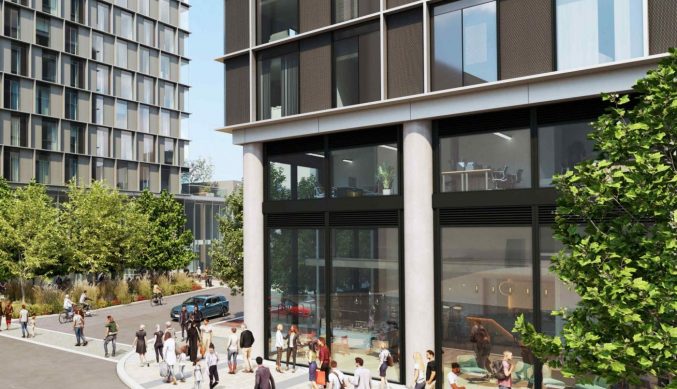House prices race to record highs
By David Craik

House prices rocketed to record highs last month after continued Government market support put ‘a spring in the step’ of buyers.
The latest Halifax House Price Index revealed that prices in March rose 1.1% on February, the first hike since last November, taking the average house price to a best ever £254,606.
Prices between January and March were up by 0.3% and were 6.5% higher, or £15,430 in cash terms, than in March last year.
Russell Galley, managing director at Halifax, hailed a ‘resurgence’ in the housing market after a relatively subdued start to the year.
“Casting our minds back 12 months, few could have predicted quite how well the housing market would ride out the impact of the pandemic so far, let alone post growth of more than £1,000 per month on average,” he said.
“The continuation of government support measures has been key in boosting confidence in the housing market.
The extended stamp duty holiday has put another spring in the step of home movers, whilst for those saving hard to buy their first home, the new mortgage guarantee scheme provides an alternative route onto the property ladder.”
Galley expects these elevated levels of activity to continue in the coming months as consumer confidence is spurred on by the successful Covid vaccine rollout, buyers desiring larger properties and more outdoor space and changing work-life priorities.
“A shortage of homes for sale will also support prices in the short term, as lower availability always favours sellers,” he added.
“However, with the economy yet to feel the full effect of the biggest recession in more than 300 years, we remain cautious about the long-term outlook.
Given current levels of uncertainty and the potential for higher unemployment, we still expect house price growth to slow somewhat by the end of this year.”
Anna Clare Harper, chief executive of asset manager SPI Capital, said the price growth reflects two broad trends.
“Firstly, affordability. The temporary stamp duty reduction is having a more than proportionate impact since it gives buyers a larger deposit to work with, and they take lending on the property price, not the transaction costs,” she said.
“In addition, ongoing low interest rates make the cost of borrowing very low, and high savings rates over the past year have given many buyers an opportunity to increase their deposits, so that they can afford to pay more for housing.
Secondly, rising living standards. This is a long-term global trend and we have seen it come to the fore in the UK housing market in the form of existing homeowners trading up to improve their living environment.”
She expects the extension to the stamp duty holiday to continue encouraging housing transactions and price growth, though this will slow as the measures ‘taper down’.
Jeremy Leaf, north London estate agent and a former RICS residential chairman, added: ’Faster rollout of the vaccine has helped to encourage more appraisals and instructions but not at a fast enough rate to head off further upward pressure on prices in the traditionally busier spring market.
We have noticed from connected chains that demand is even stronger outside the capital in the race for more space and so many have brought forward home-buying decisions.
‘Looking forward, recent activity should help offset some inevitable softening in prices when the stamp duty holiday tapers, then finally ends.’
Mark Harris, chief executive of mortgage broker SPF Private Clients, said lenders were responding to higher demand.
“With hardly a day going by without another lender launching a high loan-to-value offering, and indeed rates coming down on these as more providers enter the fray, there is plenty on the lending front to tempt borrowers,” he said.
“The less desirable impact, particularly for first-time buyers, is the surge in prices as demand outstrips supply.”
Tomer Aboody, director of property lender MT Finance, also highlighted a lack of stock increasing competition and prices.
“Is it time for the government to review the stamp duty at the higher level or possibly remove downsizers’ stamp duty altogether in order to improve supply and help buyers find properties?” he said.
“While money is cheap and confidence is high with the vaccine rollout, maybe a further stamp duty change higher up will help the market further.”
However, Guy Harrington, chief executive of residential lender Glenhawk, warned about too much Government intervention.
“The continuation of government support measures has only added unnecessary fuel to the fire in stimulating house price growth, regardless of the deep and lengthy recessionary environment that still looms large,” he said.
“Given that it is unlikely the government will do a U-turn on any of its support policies, the housing market will continue its untenable boom until autumn.
How long this will endure once the job support scheme, stamp duty holiday and other stimulus measures end is anyone’s guess.”

David Craik is a freelance journalist writing news, feature articles, blogs and guides for national newspapers and magazines. His main areas of interest include finance, property and investments.










You must be logged in to post a comment.